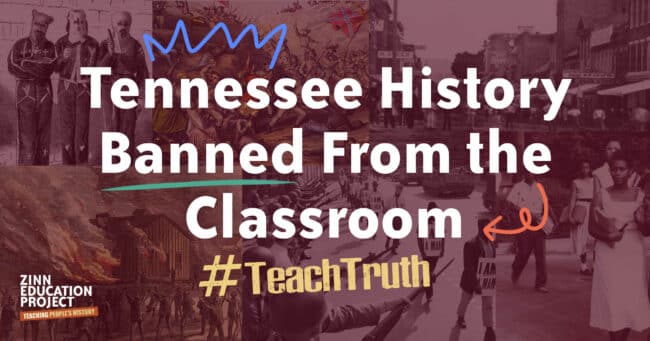
In the face of the Tennessee law HB0580 that restricts teaching about systemic racism and sexism, we take a look at stories in Tennessee history that could be off limits to students. (There is a 2024 legal effort by teachers to overturn the law.)
These curricular gag rules began after the 2020 uprising as greater numbers of teachers committed to teach outside the textbook. This includes Tennessee, where Zinn Education Project registrations of mostly-classroom teachers at our site have doubled since June of 2020.
Tennessee officials know that when students learn from history, they demand and can organize to shape a more just future. As is demonstrated in our report on teaching Reconstruction, much of people’s history is not in the textbooks nor standards.
We support the thousands of Tennessee teachers who teach outside the textbook — who share with students the people’s history stories below and many more.
Here are a few stories from Tennessee history which are relevant to K-12 curriculum on history, language arts, and science. There are countless more.
 |
900 to 1450: Mississippian PeriodDuring the Indigenous Mississippian Period in Tennessee, the people were mainly farmers. They grew corn, beans, and squash, called the “three sisters,” and also engaged in hunting and gathering. The “sisters” provided a stable and balanced diet, making a larger population possible. The Nashville area was a major population center during this period. Thousands of Mississippian-era graves have been found in the city, and thousands more may exist in the surrounding area. Mississippian Indians built pyramid-shaped platform mounds out of earth where they conducted their political and religious affairs. Read more at the Museum of Native American History. |
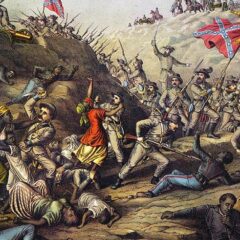 |
April 12, 1864: Union Soldiers Massacred at Fort PillowConfederate troops massacred over 500 surrendering Union soldiers, majority African American, at the Civil War Battle of Fort Pillow. Read more. |
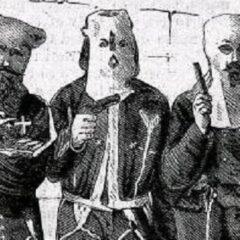 |
Dec. 24, 1865: Ku Klux Klan FoundedThe Ku Klux Klan was founded in Pulaski, Tennessee. Read more. |
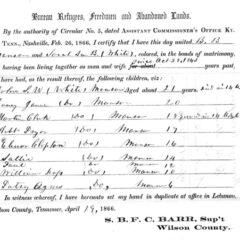 |
April 19, 1866: Couple Receives Freedmen’s Bureau Marriage CertificateBenjamin Berry Manson and Sarah Ann Benton White, formerly enslaved in Tennessee, receive an official marriage certificate from the Freedmen’s Bureau. Read more. |
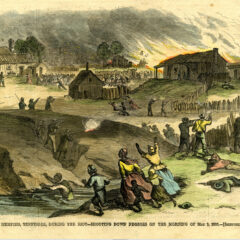 |
May 1 – 3, 1866: Memphis MassacreWhite civilians and police killed 46 African-Americans and injured many more while burning houses, schools, and churches in Memphis, Tennessee. Read more. |
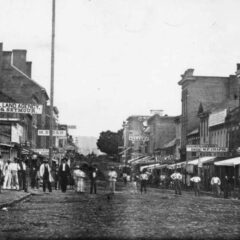 |
Aug. 2, 1869: First “Redeemer” Government Established in TennesseeThe first “Redeemer” government is established in Tennessee after conservatives gain control of the state’s General Assembly, ushering in an era of Jim Crow segregation laws. Read more. |
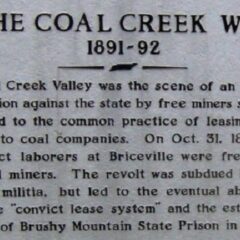 |
Oct. 31, 1891: Coal Creek WarA labor uprising to protest convict leasing led to the Coal Creek War. Read more. |
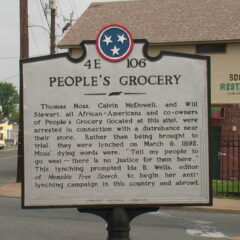 |
March 9, 1892: The People’s Grocery LynchingsA white mob seized three African American business men in Memphis, Tennessee and lynched them without trial. Read more. |
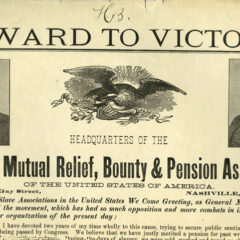 |
Nov. 28, 1898: First National Convention of the Ex-Slave Mutual Relief, Bounty, and Pension AssociationThe Ex-Slave Mutual Relief, Bounty, and Pension Association was founded with a dual mission to organize mutual aid for its members and to pass federal pension legislation that would compensate every formerly enslaved person. Read more. |
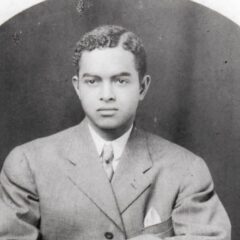 |
Aug. 30, 1919: The Knoxville RiotA group of white people rioted after forming a mob to lynch Maurice Mays, a Black man in custody on for the alleged (with no evidence) murder of a white woman in Knoxville, Tennessee. Read more. |
 |
July 21, 1925: Scopes Trial RulingIn the case of John T. Scopes vs. the State of Tennessee, the defendant, Scopes, was found guilty and fined $100 for teaching about evolution — which was illegal in the state at the time. Read more. |
 |
Feb. 26, 1946: Columbia UprisingThe Columbia Uprising took place in Columbia, Tennessee on February 26, 1946, when Black residents collectively defended themselves against rioting police officers and local white supremacist militants. Read more. |
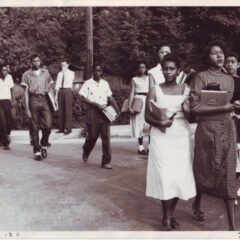 |
Sept. 1, 1956: Clinton Desegregation CrisisThe White Citizens Council and Ku Klux Klan launched full-scale rioting in Clinton, Tennessee in response to school desegregation. Read more. |
 |
March 16, 1958: White Supremacists Bomb Jewish Community CenterIn one of many white supremacists attacks during the early years of the Civil Rights Movement, a Jewish Community Center was bombed in Nashville, Tennessee. Read more.
|
 |
April 19, 1960: Attempted Assassination of Nashville NAACP AttorneyFamed civil rights lawyer and politician Z. Alexander Looby’s North Nashville home was dynamited in an assassination attempt. Read more. |
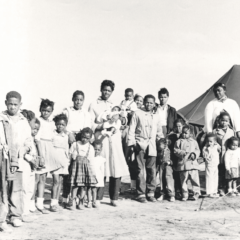 |
Dec. 28, 1960: Black Farmers Evicted for Registering to VoteBlack sharecroppers were evicted by white landowners simply for exercising their right to register to vote. Read more. |
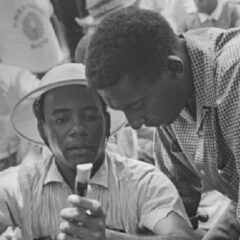 |
June 6, 1966: James Meredith and the March Against FearAir Force veteran James Meredith began the March Against Fear from Memphis, Tennessee to Jackson, Mississippi. Read more. |
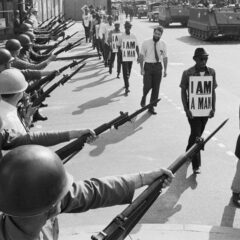 |
Feb. 12, 1968: Sanitation Workers Strike in MemphisOver 1,100 sanitation workers strike and march for better wages, conditions, and safety with Dr. Martin Luther King Jr. in Memphis, Tennessee. Read more. |
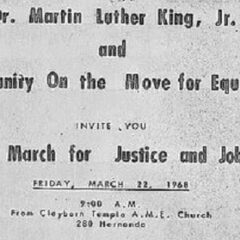 |
March 22, 1968: March for Justice and JobsDr. Martin Luther King Jr. and the Community on the Move for Equality called for a march in Memphis, Tennessee in solidarity with sanitation workers. Read more. |
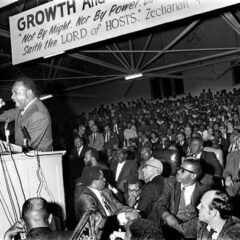 |
April 4, 1968: Martin Luther King Jr. AssassinatedDr. Martin Luther King Jr. was assassinated while in Memphis to support the striking sanitation workers. Read more. |
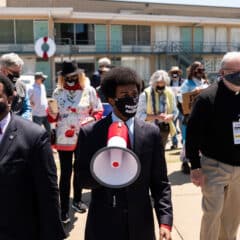 |
July 2, 2021: Opposition Prevents Byhalia Pipeline ConstructionDue to overwhelming opposition from activists and community members, construction of the Byhalia Connection oil pipeline in greater Memphis, Tennessee was canceled by its developers, Plains All American Pipeline. Read more. |
Books
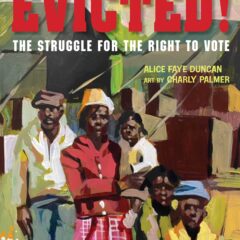 |
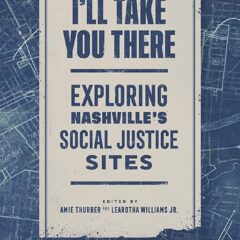 |
 |
 |
Dynamite Nashville: Unmasking the FBI, the KKK, and the Bombers Beyond Their Control by Betsy Phillips
Evicted!: The Struggle for the Right to Vote by Alice Faye Duncan, illustrated by Charly Palmer
I’ll Take You There: Exploring Nashville’s Social Justice Sites edited by Amie Thurber and Learotha Williams Jr.
This Promise of Change: One Girl’s Story in the Fight for School Equality by Jo Ann Allen Boyce and Debbie Levy
Memphis, Martin, and the Mountaintop: The Sanitation Strike of 1968 by Alice Faye Duncan, illustrated by R. Gregory Christie
People’s Plaza: Sixty-Two Days of Nonviolent Resistance by Justin Jones
Websites
Chattanooga Organized for Action
Articles and Interviews
“Dynamite Nashville”: FBI Role in Civil Rights-Era Bombings Revealed, Linked to Later Racist Attacks, Democracy Now! interview with historian and journalist Betsy Phillips
Moms in Sumner County Fight for the ‘Right to Read,’ Keep Books on the Shelves by Kelsey Gibbs at Nashville News Channel 5
How a disabled Black trans woman left her mark on 19th-century Memphis: For a brief moment in history, Frances Thompson was Memphis’ biggest scandal. Her life paints a different picture of our civil rights legacy by Justin A. Davis in The Emancipator


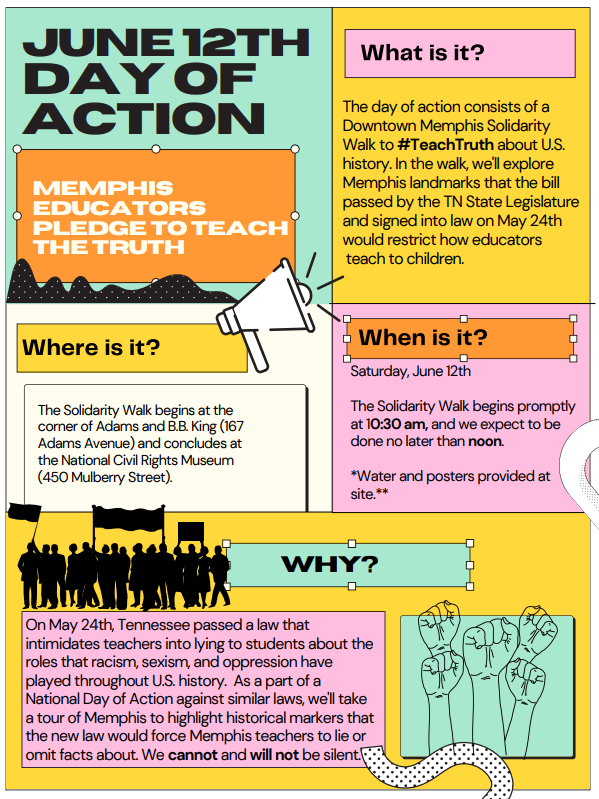


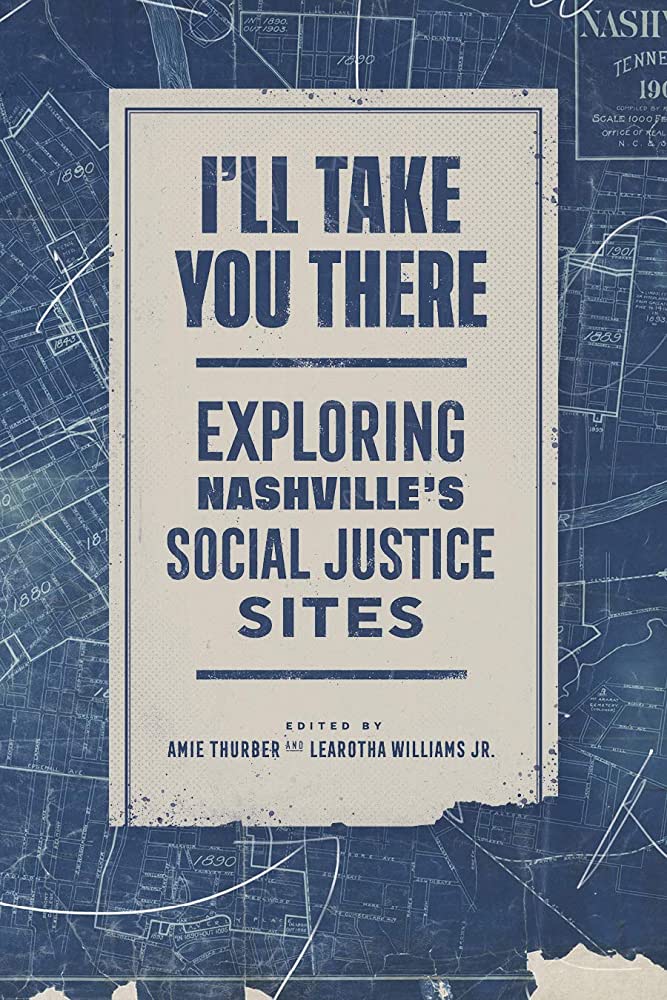





Twitter
Google plus
LinkedIn